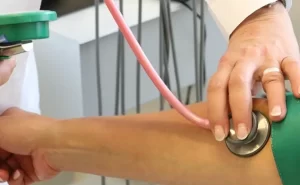The Importance of Stress Management in the Treatment of Erectile Dysfunction
In many cases, erectile dysfunction (ED) is caused by a combination of physical and psychological factors, which can be pretty irritating. The use of techniques for stress management can be a practical approach to treating eating disorders, particularly in cases where psychological issues are involved. These are some methods that you might want to try:
Techniques for Relaxation and Mindfulness:
Meditation on Mindfulness: Meditation on mindfulness involves bringing your attention to the here and now without passing judgment on what you see or feel in that moment. The practice of this activity can alleviate anxiety and stress, which in turn can enhance blood flow and alertness.
Deep Breathing Exercises: Engaging in deep, slow breathing exercises can be an effective strategy for activating the body’s natural relaxation response. This enables the body to provide a counterweight to the heightened stress response, which is known as the fight-or-flight reaction.
When the body is presented with a stressful situation, the sympathetic nervous system is activated, releasing hormones such as adrenaline and cortisol. These chemicals help the body prepare for a potentially hazardous circumstance.
As the body prepares to either confront the stressor or flee from it, this physiological response causes a rise in the heart rate, blood pressure, and muscle tension.
Deep, diaphragmatic breathing, on the other hand, can help counteract this stress reaction by stimulating the parasympathetic nervous system, which is the part of the nervous system in charge of the body’s functioning during rest and digestion.
Progressive muscular relaxation is a technique that involves tensing and releasing different muscle groups throughout the body.
Through the practice of taking slow, deep breaths that cause the belly to expand, the diaphragm is activated, which sets off a chain reaction of physiological changes that promote relaxation.
The heart rate slows during the body transitioning into a more relaxed state, blood pressure drops, and muscle tension is released. This change in the autonomic nervous system serves to offset the adverse effects of stress, allowing the individual to feel calmer, more focused, and better able to cope with the demands of their environment. Also, this shift helps to counteract the negative consequences of stress.
Regular practice of deep breathing techniques, such as belly breathing or box breathing, might be helpful in training the body to more readily access this relaxation response. These exercises provide a valuable tool for managing stress and maintaining general well-being.
Progressive muscular relaxation is a technique that involves tensing and releasing different muscle groups throughout the body. Its purpose is to promote relaxation and stress release.
Modifications to One’s Lifestyle:
Regular exercise: Regular exercise helps reduce stress hormones and improves overall blood circulation, which can boost erectile function. Regular exercise also helps improve overall blood circulation. On most days of the week, you should strive to exercise at least thirty minutes at a moderate level.
A well-balanced diet abundant in fruits, vegetables, and whole grains supplies your body with the nutrients it needs to perform sexual function at its highest level. Sugary drinks, processed foods, and excessive amounts of saturated fat should be avoided.
You should strive to get between seven and eight hours of decent sleep every night. Your body is better able to deal with stress and sexual arousal when you have gotten enough rest.
Alcohol and smoking should be limited since excessive use of alcohol and smoking can both reduce blood flow and contribute to erectile dysfunction (ED).
Certain medical disorders can be a contributing factor in erectile dysfunction (ED); hence, it is essential to manage them.
Message Exchange and Psychotherapy:
Open and Honest Communication with Your Partner: It can be pretty beneficial to have an open and honest conversation with your partner about your concerns regarding your disorder. Being able to sense that your partner is there for you and understands you can considerably alleviate feelings of tension and anxiety.
Sex Therapy: A sex therapist can assist you and your partner in addressing the underlying emotional issues, communication issues, and performance anxiety that may be contributing to erectile dysfunction with the help of treatment.
Additional Suggestions to Consider:
Cognitive behavioral therapy, also known as CBT: is a type of therapy that was developed to assist in the identification and modification of opposing ideas and beliefs that are associated with performance anxiety.
Pay attention to the foreplay: do not immediately begin the sexual activity. Time should be spent on foreplay, primarily focusing on physical closeness and emotional connection. In addition to making sexual activity more pleasurable, this can assist in lessening performance anxiety.
Certain medical disorders can be a contributing factor in erectile dysfunction (ED): hence, it is essential to manage them. Make an appointment with your primary care physician to discuss any potential underlying health problems that may be hurting your sexual function.
Keep in mind that these methods require time and practice to be effective. If you want to change your lifestyle and mental well-being, you need to be patient with yourself and concentrate on making modest improvements.
It may be incredibly advantageous to seek the advice of a physician or therapist if you are having difficulty managing erectile dysfunction (ED) on your own. They can assist in determining the reason for your ED and provide recommendations for individualized treatment alternatives.













